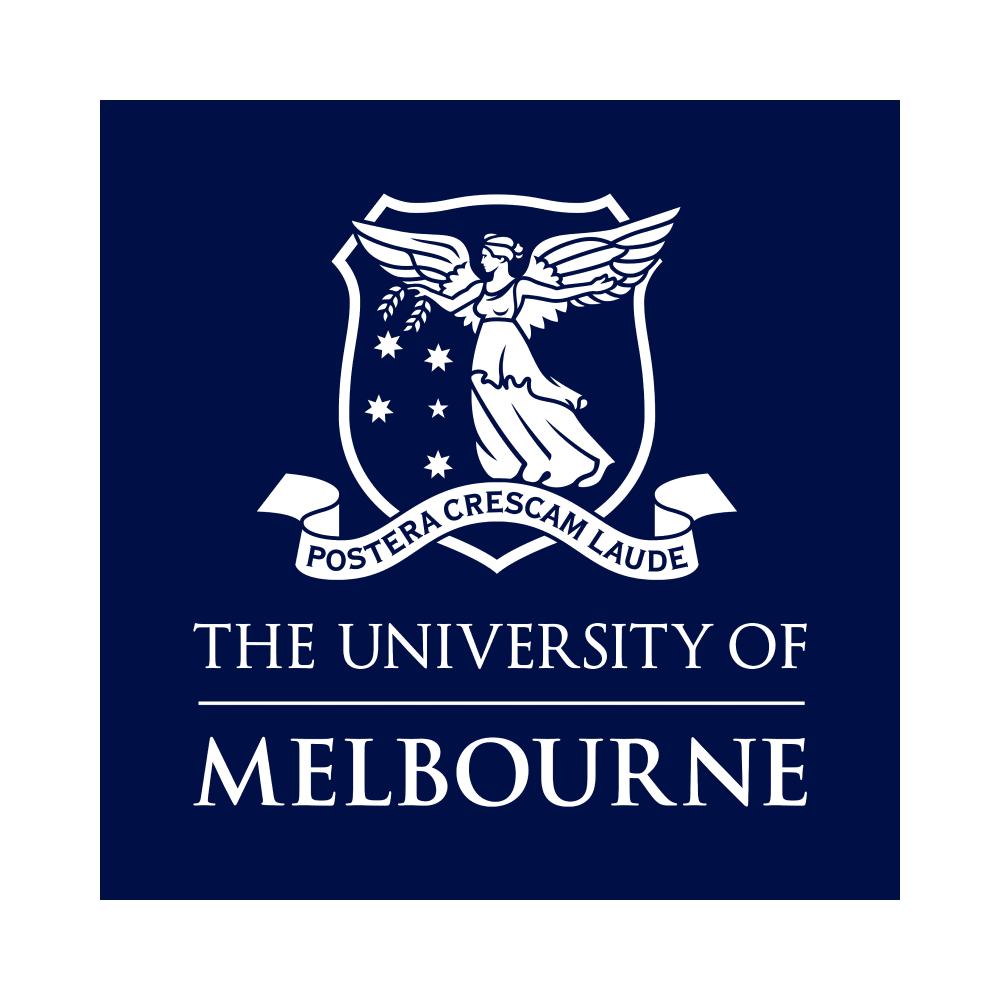University of Melbourne
Master of Finance
- Delivery: Face to Face
- Study Level: Postgraduate
- Duration: 12 months
- Course Type: Master's
Get equipped with specialist technical knowledge that prepares you for a career in the ever-evolving finance sector.

Course overview
Become a finance expert and build practical skills
Prepare for your career in the ever-evolving finance sector with a Master of Finance from Melbourne Business School. Join a small cohort of students in this elite program and develop specialist knowledge of Australian and international financial markets. Gain practical experience on real-life consulting projects, learn from industry experts and hone your skills during in-class simulations. Graduate with a highly sought-after skillset, ready to work in Australia or overseas.
Key features
- Chartered Financial Analyst (CFA) Institute recognised. Study at a CFA-affiliated university and cover at least 70% of the program partner requirements. You’ll be in a strong position to prepare for the CFA exams after graduation.
- Boutique program. Join a high-calibre cohort with a limited number of students admitted each semester.
- Real-life consulting opportunities. Take the practicum elective to work as part of a group on a real-life consulting project in Melbourne, Sydney, or overseas (previous groups have gone to Shanghai, London, Singapore and Paris).
CSP Subsidised Fees Available
This program has a limited quota of Commonwealth Supported Places (CSP). The indicative CSP price is calculated based on first year fees for EFT. The actual fee may vary if there are choices in electives or majors.
Key facts
July, 2026
What you will study
The degree requires a completion of 150 points, comprised of:
- Four compulsory subjects
- At least four core subjects
- Two capstone subjects
- Up to two elective subjects
Students must complete the following four compulsory subjects:
- Quantitative Analysis of Finance I
- Economics of Finance
- Financial Statement Analysis
- Financial Markets and Instruments
Entry requirements
Academic requirements
To be considered for entry into this course, you must have completed the following:
- A bachelor's degree (AQF7) or equivalent in a cognate (relevant) discipline.
- Completed the following prerequisite subjects:
- Corporate Finance (FNCE20005) or equivalent
- Investments (FNCE30001) or equivalent
- Derivatives Securities (FNCE30007) or equivalent
Cognate (relevant) disciplines include: A major in finance, or a minor sequence or specialisation in finance.
English language requirements
All applicants to the University of Melbourne must satisfy the English language requirements. This may be achieved in a number of ways, including a recognised previous study taught and assessed entirely in English or an approved English language test.
Contact the university or visit its website for more information.
Recognition of Prior Learning
Prior studies may be credited towards your degree and potentially reduce the duration of your course. This is known as Advanced Standing (also known as credit or recognition of prior learning). Contact the university for more details.
Outcomes
Learning outcomes
As a graduate of the Master of Finance, you’ll be:
- Knowledgeable across a variety of finance specialisations, including financial markets, corporate finance, investment management, quantitative finance and financial technology.
- Skilled in analysing and solving complex financial problems.
- A critical thinker, aware of the contribution of financial theory to sound financial decision-making in practice.
- An effective communicator of financial concepts and ideas to both specialist and non-specialist audiences.
- An effective team member through participation in collaborative exercises.
- Adept at the retrieval and manipulation of financial information and data from a variety of sources.
- Aware of the importance of applying high ethical standards in professional practice.
Career outcomes
Graduates of the new Master of Finance will forge international careers in the finance industry, applying their technical skills to the areas of:
- Investments
- Banking
- Corporate advisory
- Financial analysis
Fees and CSP
Average first-year fee in 2026: From $17,392 (Commonwealth Supported Place)
Indicative first-year fee in 2026: $37,984 (domestic full-fee paying place)
All costs are calculated using current rates and are based on a study load of 100 credit points (normally eight subjects) per year.
Student fees may vary in accordance with:
- The number of subjects studied per term.
- The choice of major or specialisation.
- Choice of subjects.
- Credit from previous study or work experience.
- Eligibility for government-funded loans.
You may also need to pay the student services and amenities fee.
Student fees shown are subject to change. Contact the university directly to confirm.
Commonwealth Supported Places
The Australian Government allocates a certain number of CSPs to the universities each year, which are then distributed to students based on merit.
If you're a Commonwealth Supported Student (CSS), you'll only need to pay a portion of your tuition fees. This is known as the student contribution amount – the balance once the government subsidy is applied. This means your costs are much lower.
Limited CSP spaces are offered to students enrolled in selected postgraduate courses.
Your student contribution amount is:
- Calculated per the subject you're enrolled in.
- Dependent on the study areas they relate to.
- Reviewed and adjusted each year.
HECS-HELP loans are available to CSP students to pay the student contribution amount.
FEE-HELP loans are available to assist eligible full-fee paying domestic students with the cost of a university program.

















